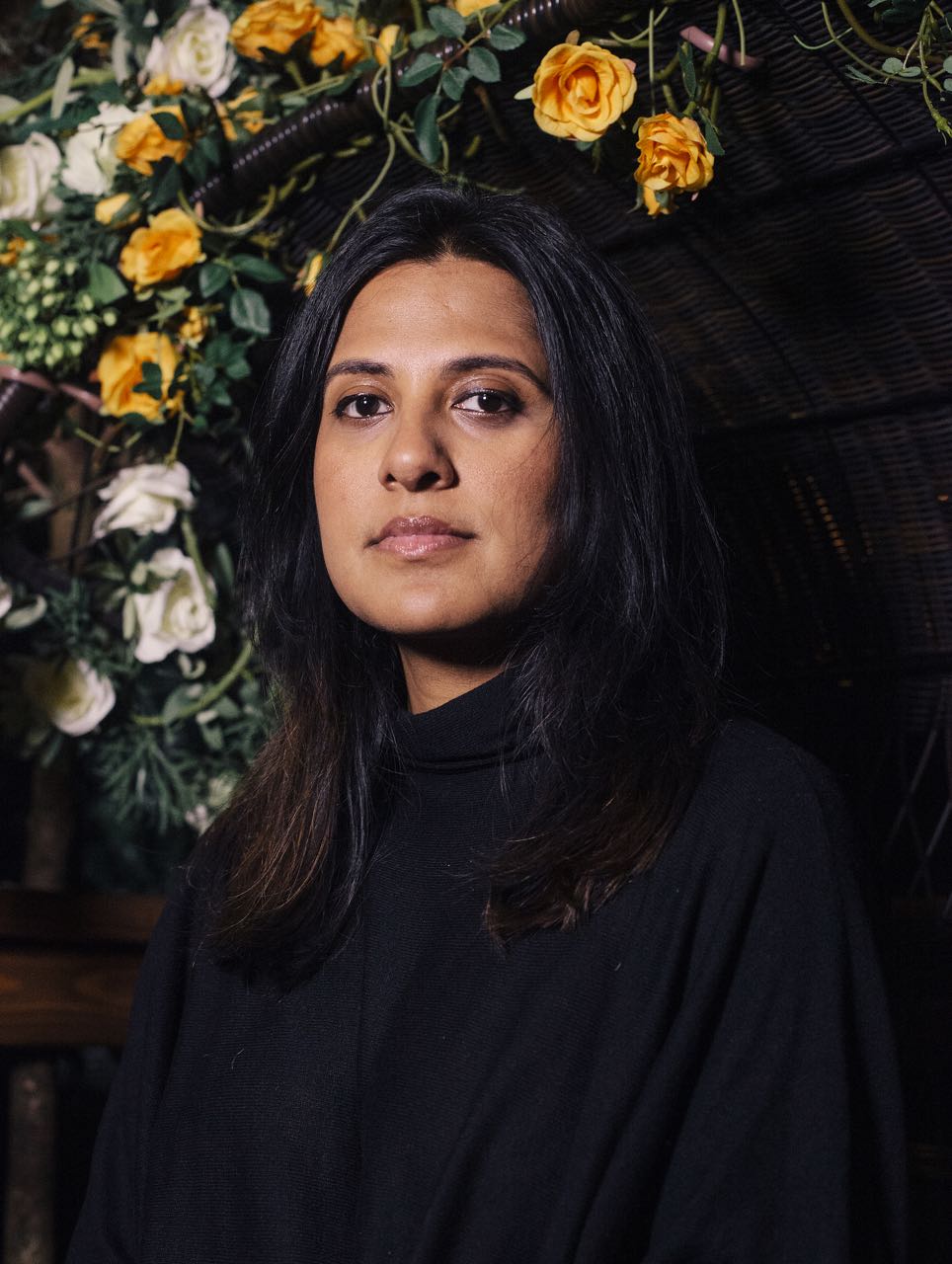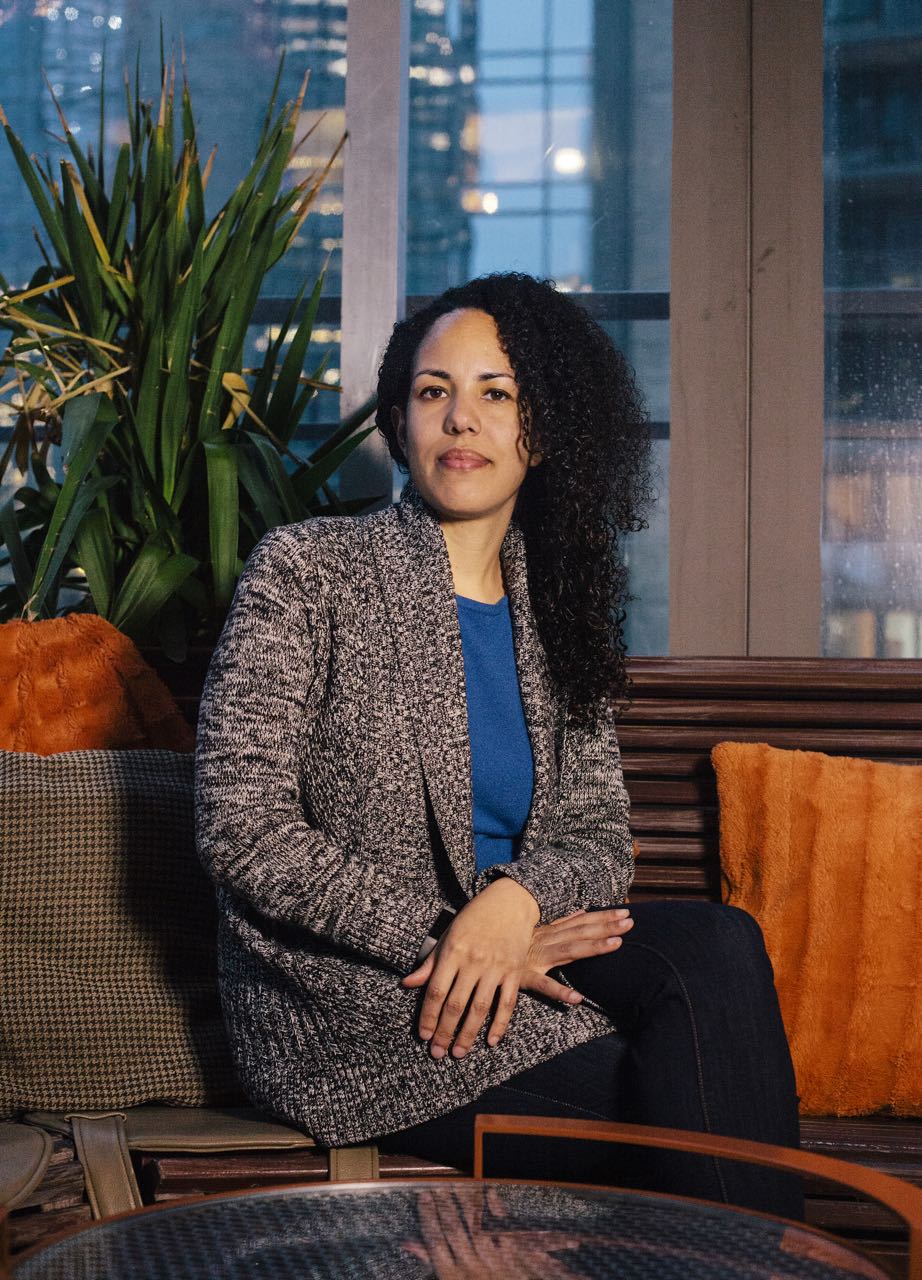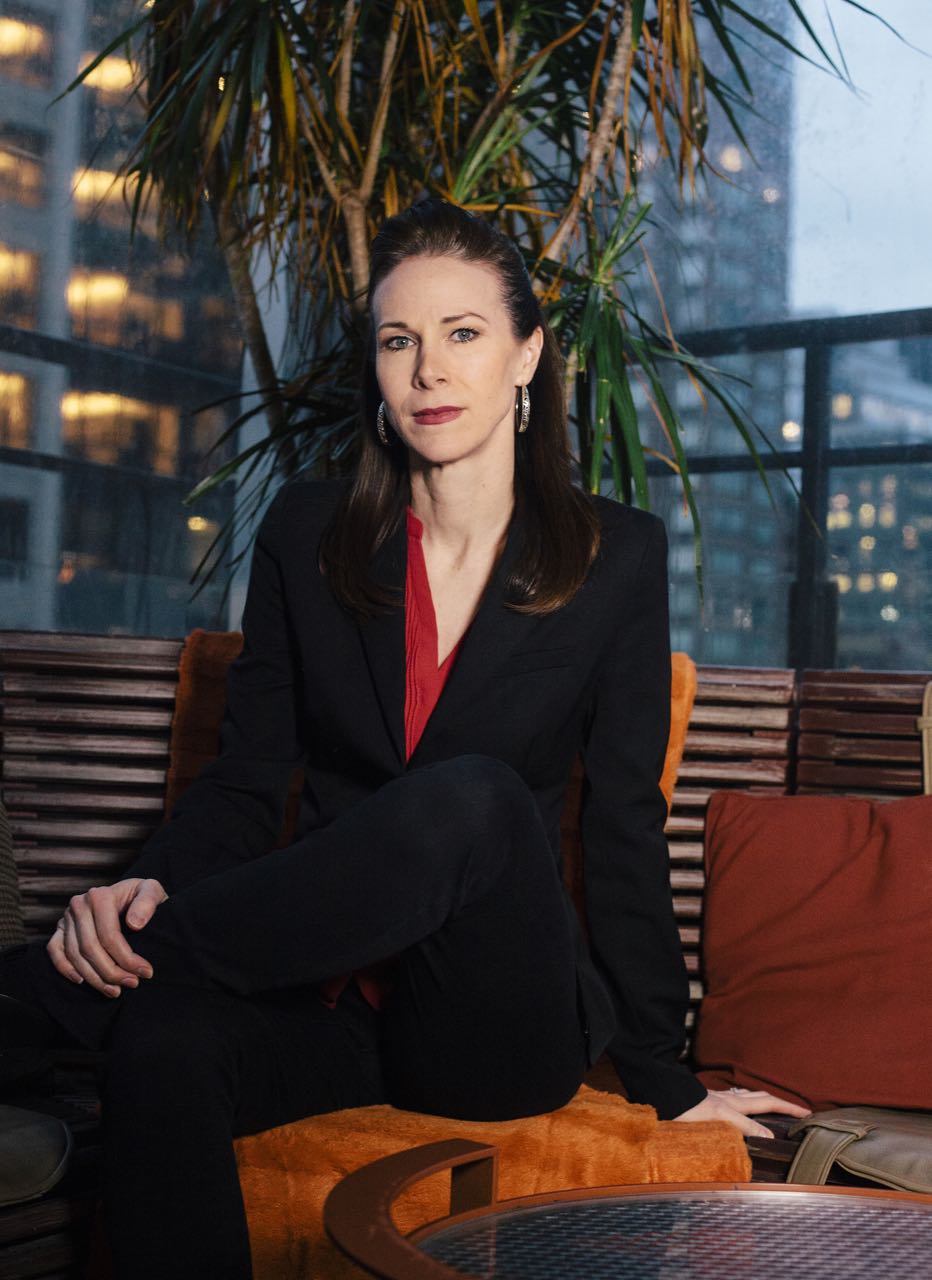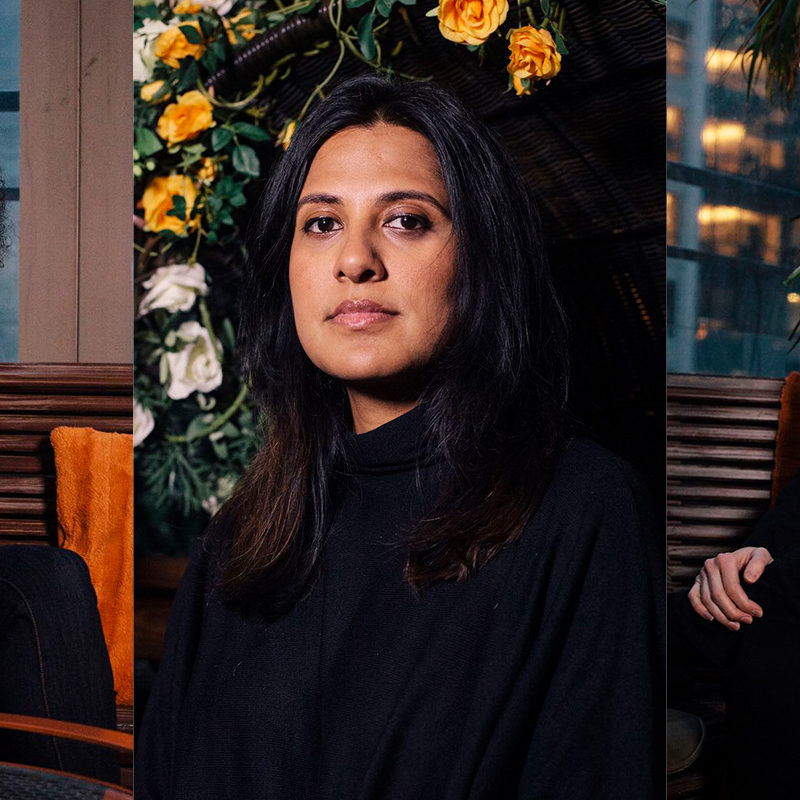A Directing Roundtable with Arpita Mukherjee, Christa Scott Reed, and Colette Robert
March 5th, 2019
Out of the 21 plays currently on Broadway or are upcoming this season, only three (a dismal 14%) are directed by women. However, Off-Broadway, there is a vibrant group of emerging new directors, many of whom are women staging exciting new work. I recently sat down for a roundtable discussion with Colette Robert (director of Behind the Sheet by Charly Evon Simpson at Ensemble Studio Theatre), Arpita Mukherjee (director of Eh Dah? Questions For My Father by Aya Aziz at Next Door at NYTW) and Christa Scott Reed (director of A Man for All Seasons by Robert Bolt at the Acorn Theatre). The women spoke about their desires to bring diverse stories to the stage; the challenge of balancing directing with their myriad other jobs, including acting, writing, and artistic directing; the importance of building community in the rehearsal room; and more.
You’ve all done a lot in this industry in addition to your directing work, as a writer, artistic director, and actor, respectively. How would you describe what you do? Do you think of yourselves as directors first, or more generally as theatre artists?
Colette: I do consider myself a director first. In the past three years, I have started writing, but I’m still a little shy about it. So normally I do just say I’m a new play director.
Arpita: I think I consider myself a director first, but I run my own company so I’m an artistic director as well. I had to self-produce my work, because nobody else was doing that work. So I think I have good producing skills, but they’re always a bit under the surface, below being a director.
Christa: I could not have called myself a director until very recently. I’ve been an actor for 25 years. Directing is new to me, in the last couple of years. I am still shy to even claim myself as director, though I certainly have directed. I guess “theatre artist” is probably a good overall term. I’m also a literary manager for a theatre company, and I teach and coach. I’ve got my toes dipped into various different wading pools of the theatre. Being ushered into the world of directing feels like jumping in the deep end in the best way.

What was the journey towards becoming a director like for you? It seems that there were some specific, pragmatic reasons for why you choose to pursue directing in the ways that you did.
Arpita: I wanted to be a fiction writer, because there was nobody in the theatre that looked like me, but when I was coming of age, there were a lot of fiction writers that did. So, I could sort of see myself more in that. But I wrote a play that got into a festival in DC. I was watching the director direct my play and I was like, “Oh, I want to do that.” I wanted to direct. I wanted to make the plays. I went to work at a bunch of theatre companies in DC, back when DC was very classics oriented. The only way I could really do the kind of work I wanted to make was if I raised money and then [put up my work in] the fringe festival. We raised a lot of money, well not a lot, but we raised money to put it up. So for many years, I built that producing muscle in order to be able to direct. It’s only now that I’m letting go of that muscle; in the last year or so, I’ve been really gifted to have found producers. I think, for me, the other muscle had to be grown—reading new plays, curating a season—but I think it all swirls around that original instinct of what a room should be like for people, how you create a tribe and a family. That all feels like it swirls out of directing for me.
And what does the room look like for you, ideally?
Arpita: I think I’m like a cruise director. I like having really open rooms. I like working very collaboratively. I like having a lot of fun and really building community. My theatre company [Hypokrit Theatre Company] is really community oriented, and the work that I do is also to bring communities into theatres that don’t usually go to the theatre. I work with a lot of artists who are not typical theatre artists.
Colette: I actually started directing in high school. My first artistic love was visual art, but I took this class in my junior year where I had to direct a scene from Tom Stoppard’s The Real Thing. Something just clicked in my brain. I was like, “I love this.” I love interpreting a text and then making something visual and 3D. It was really, really exciting. My [previous] theatre experience was probably being like the third person on the left, but directing meant I had center stage, making something, which I really loved. And I just didn’t stop.
And what does your ideal rehearsal room look like?
Colette: It has a lot of different colors in it. It’s a community. A lot of my work has love at the center, in terms of trust, and how we make stuff together. It is very collaborative, and community focused as well.
Christa: In terms of directing, I came to it because, as I mentioned, I was an actor for many years; I am an actor still. I was part of a show that was in development, and the director and the writers of the show were incredibly collaborative in their process. As we were working on the play, they were open to us actors speaking out about the dramaturgy of it. I went from volunteering my thoughts to [the writers] starting to come to me about other projects and saying, “We liked your vision. We liked your ideas. Do you have some ideas about this project? And what about this one? And what about this one?” And then, it just extended into saying, “We trust your eye. We trust your work. Why don’t you start to direct?” When I said, “I don’t have the same training and amazing fellowships that my colleagues have,” they said, “You’ve been in the room for 25 years.” Which is not to say that that is a substitution for the incredible technique and training that traditionally trained directors get. But they were saying “We trust where you’re coming from.” And it’s been just a joy. It’s been a delight.

Have you ever felt like you’ve been in a situation where your authority has been challenged? How did you figure out how to overcome that while still being a leader of a group?
Arpita: Yes. I feel like it’s a trifecta of age, gender, and race. I think it happens especially when you’re coming from an institution. When you start out, a lot of times you’re doing it with your friends, and you’re really starting a community. I think it’s harder when you have to go direct somewhere else, where the values are a little different, where you’re entering a different culture than the one you’ve been cultivating for yourself. Some people will think you’re too aggressive or assertive, some people will think you’re not assertive. You just have to do the work and let that inform what you’re doing.
Colette: I actually just directed a show at Rutgers, and the students were great, but I remember at the last performance, a bunch of other students I didn’t work with came to see the show. I was actually sitting behind them, and I heard them wondering who the director was. One of them stood up, looked over the entire theatre, including me, looked at this sixty-year-old white woman and was like, “I bet that’s her.” They looked right at me, and never thought that I could be the director of this play.
Arpita: Did you say anything to them?
Colette: No, but it was the final performance, so the actors had me come on stage and gave me flowers. So then they were like, “Oh!”
Christa: I think a lot of it for me is self-generated. Growing up as a nice little Lutheran girl in the Pacific Northwest, I was constantly apologizing for myself and constantly not feeling like I should be invited into the room. So, as much as that may be also an external force, there’s a very strong internal force there too. I do think that’s partly my age. too. I see younger woman able to claim their space in a way that just makes me so proud and excited for them. I realize I need to watch them and learn, too. I don’t feel that shyness as an artist. When I’m in the rehearsal room, I feel like I run a room with no apology. It’s just once I step out of that rehearsal space, that art-making space, into a different kind of space that adjoins the art-making space. That’s currently what I’m working on.
Colette: I do the same with interviews; I really clam up in a way that I also don’t in a rehearsal. I know exactly what to do when I’m making something, but when I’m being questioned and judged, and if someone’s deciding something about me, that’s when I freeze up.
Arpita: I also feel that directing is a very hard thing to talk about in general. What we do is so elusive you know? Like what did I do on that play? You know what you’re working on in the room, but outside of the room, that is very hard to describe and talk about. I love working. I feel so much camaraderie. I work almost always with women and women of color. I’m now really making it my business to work with as much care for people as possible, and have a room of care because what we do it so hard and it’s so full of doubt and disappointment.
Colette: It’s so personal.
Arpita: It’s so personal. I never feel like someone’s not able to do their work because they’re overcome by societal pressures, but I see the difference in the work they’re doing and the work they’re getting, and how they’re climbing this career ladder.
Christa: When I first moved to New York, one of the major film schools had this illustrated ad that was plastered everywhere for the longest time. I was up in arms because it showed a film set—the producer, the cinematographer, the director, every single part that could possibly be involved in film—and the only women in it were the actress and the girl that goes clap with the slate thing. And I thought, “This isn’t even a photograph from a film set. This is an illustration. You could have made it whatever you want.” I thought about that when we were in a production meeting for the show I’m doing now. I looked around the production meeting, and our technical director is a woman, our master electrician is a woman, our master sound engineer is a woman, our master carpenter is a woman, our deck crew are women, our PSM, our ASM, our PA, are all women. And I thought, “What a change.” I love that. We’re pushing the needle; something’s moving.
Colette: When I get hired for jobs, I’ve started telling them that I want at least half of the designers to be women and at least half to be of color. It’s really important to me that there’s inclusivity at every aspect of this show. Not just the cast, but behind the scenes as well.
What sorts of stories do you feel that you’re drawn to help tell? How does representation fit into your vision?
Arpita: I’m drawn to work that reflects my values and the experiences that have shaped me. Actually, it’s very personal. And now I’ve been questioning what it means to do more things that are universal. I’m always drawn to stories of immigration, alienation, displacement. I’m drawn to work by people of color that is allowed to be expansive and not just kitchen sink drama. I’m very drawn to musicals, and musicals by artists who are trying to do something subversive with the form of the American musical. I think the world is more than the theatre reflects now.
Colette: I would consider exploring what the world could be. What it is and what it could be. What we’re pushing towards. I like telling stories about black women, because I am one, and I don’t often see myself within the black women stories that I see get lifted up. But it’s changing, which is great. I love stories that can hold a rich visual world. Identity, magic, history. I’m interested in the messiness of being an American, the beauty and the ugliness of that.
Christa: In the last year or two, I’ve loved going to see some of the amazing stories being put out in the theatre world by women reexamining the form of theatre, and what it is to tell a story as a woman, like Jaclyn Backhaus’ Men on Boats and Clare Barron’s Dance Nation. Those stories are fascinating to me. And they leave you to draw from them what you will. The theatre company [where I direct, called Fellowship for the Performing Arts] has a very specific mission. It’s a faith-based theatre, so they do work through the lens of faith. It’s been very interesting to be part of that process, because certainly the faith world is not a marginalized group. In fact, many faith institutions have caused a great deal of pain to a great deal of people. But [they have] also given a great deal of compassion and love and hope and joy to a lot of people. The theatremakers at that theatre discovered that faith audiences didn’t have theatre that met them at an intellectual level. There’s so much dumbed-down religious theatre. The idea of choosing pieces that meet you where you are intellectually and emotionally can be satisfying to someone of a different faith or of no faith. How do we create art that can live in that particular space, speak to these particular people, but also meet people of all different kinds? That’s been a really interesting challenge. It’s something that has been fascinating to try to address.
Do you think that the different jobs that you’ve done in theatre, or the different roles that you’ve played in theatre, have impacted and influenced how you’re doing what you do now?
Colette: The more that I’ve done outside of directing, the more it’s helped me have compassion for everyone’s role on a play that I’m making.
Arpita: I still get a lot of, “Are you a director or an Artistic Director?” Like you should pick. I feel like the paths for people like me are narrower for our art. I have to choose, like I won’t be able to do it all. I think producing has helped me become a better director, for sure. I mean I do understand numbers. I do know that they mean something. And so, how can I say I’m a value-driven person if, as a director, I earn more equity and pay than artists and crew? I also feel like, because I make work that could be considered non-traditional, I feel very confident in being able to get the word out to the communities that I want to participate in that. I don’t want that to be dependent on an institution, or a person who may not know how to get to the community. I think those are the two things that make me a little unusual as a director.
Christa: My training and my years as an actor definitely helped me in the room, in terms of not needing a translator between me and the actors. I speak their language. I’ve been in many a room with many a director who doesn’t speak that language. And so, as they’re speaking at you, you’re just doing the Google Translate in your brain. There is a shorthand of communications in the way that actors understand how to make choices, how to be in engaged relationship with each other, how to activate a certain moment or a scene. So, it’s a real pleasure to be able to speak that shorthand. Also, I am an actual mom, and there’s part of me as a director that’s a bit of a mom. I had a big ground plan of the set, and I brought in my son’s Legos and was like, “Okay, I can put the table here, and that here.” I tend think of things through the mom lens a lot. When you’re handling babies they like to be held, nurtured, and loved, but they have to be held with confidence. They like strong, confident motions. And, just piggybacking on that idea of what it is to have confidence in the process as a director, the mom part of me is holding this [show] with confidence, with love and compassion and nurturing, but I have to pick it up strongly so the [cast and crew] know they’re okay. I’m not going drop them. So that’s also fun, trusting the process.

Have you participated in many family-friendly rehearsals or residencies?
Colette: My stage manager at Behind the Sheet has a six-month-old and a four-year-old. They would come to rehearsals sometimes. She was still breastfeeding, so pumping was a part of rehearsal. It seemed important, especially when working on a play about the burden of women’s bodies, to have a place where the stage manager could do what she needed to do to be a working mother.
Arpita: I’m in the WP lab where babies can come and it’s all right [with everybody].
How have you sort of found ways to compensate for and manage the challenges of balancing all the logistics and various aspects of your careers?
Christa: Having a supportive partner is the key. It is difficult, because you do think, “What opportunities am I missing out on? What am I not learning or hearing about or doing that I should be in terms of my career?” But it also balances me out in a nice way. I am a Type A, Capricorn. And I feel more at ease with my mind during a show. When I’m in it and I am so heavily scheduled, I know exactly where I need to be 14 hours a day, and I am going, going, going. Then, when my show has opened, I have to be the one to make the choices about when I’m going to spend time with family, when I’m going to do my work, as opposed to having to be like, “Well it is what it is, I have to be in rehearsal, no choice in that, sorry.”
Colette: I’m a Type A, Virgo. So I love multitasking. It’s too overwhelming if you think of the big picture for everything. I just love all the little details.
Arpita: We just focus on today. What we have to do today. But I struggle with balance. I really struggle. And I’ve been really struggling with it for these last few years, when you hit that moment in your directing life where the opportunities are a little more, and you’re working all the time, but you’re not making more money. I think theatre schedules are tough. I don’t have children, but my friends do. It would be nice to go to their birthdays every now and then, but I can’t do a Saturday or a Sunday because I’m always in rehearsal. Partners have to be very understanding of our schedules. Balance is something you really have to make time for.
From your perspective as directors, what sorts of stories do you hope we’ll be seeing on more stages moving forward?
Colette: I think right now a lot of people, sometimes myself included, operate as if theatre is a community of scarcity. I would love to see us move towards thinking about it in terms of abundance instead. And I would also love for everyone to get paid more, to value art more than how it feels right now.
Arpita: I would love for us to question what the theatre is, fundamentally, and how we think about it. Maybe we have to think about what experiences people are really having joy and control in, and how we can expand the idea of what we think of as a theatrical experience, if we really want to welcome many more people to it. What is theatre? What is its possibility, and what are our possibilities as theatre artists?
Christa: I think both Colette’s and Arpita’s answers are marvelous. I agree. And, if, ultimately, we’re in the business of telling stories and telling them well, then how can we invite more people to tell these stories? How can we open our minds to whose story gets to be told and by whom so that it feels less vertical and more horizontal? It would be great if it wasn’t pulling somebody up, but pulling someone across the room, because this was a horizontal experience of all being theatremakers. Speaking as someone who came from the rank and file and got to step up, how can we all be part of the process? Who knows what telling that story will look like? It should have a lot of different definitions, and get to live in a wider berth.

